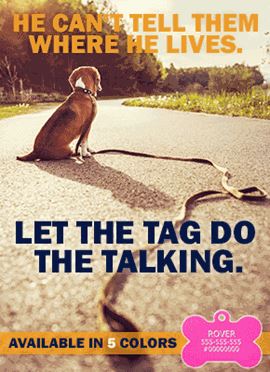
Things That Can Make Your Dog Depressed
Dogs are generally known for being spritely, upbeat, cheery animals famous for their ability to lift the spirits of those in need. However, like humans, dogs can have their moments and go through stages where they're not feeling themselves.
If you have considered dogs for adoption, then you must do your research first and understand how important the care and transition period is, as they may well suffer from depression at the start because they need time to adapt to their new living situation. Not all pets up for adoption have depression, and help will often be offered from the shelter or charity from which you adopt your dog.
If you have begun to notice that your dog has frequent mood changes and their behaviour is up and down, then it is possible that your dog may be suffering from a bout of depression. So what does depression mean for dogs, and is there anything that you can do to help?
Is dog depression easy to diagnose?
Many vets and dog experts agree that dogs experience emotions similar to those of humans, and that their emotions can go up and down. Still, it’s difficult to identify depression in animals. One of the main means of understanding depression in humans is through verbal communication, but this is, of course, impossible with dogs.
Another issue with diagnosing canine depression is the best person to actually know whether your dog has depression is you, since you know your dog's mood better than the vet.
The vet can, of course, educate you on how to treat the depression, but it is actually very hard for the vet to detect depression in your pooch. This is why you won't often see canine depression listed as an illness in the animal’s medical notes.
Generally, depression in dogs is dealt with mostly as a behavioural issue rather than a medical one. Depression in dogs is often caused by the root factors within the home.

Symptoms of canine depression
All dog breeds are different, and the ways in which their depression manifests will also differ. Some dog breeds may become slightly flat, whereas other dog breeds may not even want to play or get involved with family activities. Listed below are the general symptoms to watch out for:
- Not keen to go for walks
- Flat mood
- Sleepy
- Clingy toward owner or toys
- Slow reactions
- Lack of interest in food, and in some cases refusal to eat
- No desire to leave home
- No interest in playtime
It is important to understand that any one of the listed symptoms can also be symptomatic and signify something else wrong with the dog’s health. It is important that you check with your vet if you're unsure.
What causes canine depression?
Normally depression in dogs mirrors that of humans. While there may be no underlying cause for depression in your dog, there are certain life events or degrees of factors that can influence your dog's mood and lead to depression. These triggers are:
- Moving to a new home
- New pet in the household
- Changes to the general routine
- Empathy toward an owner who may be suffering from depression
- Loss of a family member, which can affect the dog as much as it affects other members of the family
Please be aware that this list is by no means exhaustive, and if you have any cause for concern, you should contact your vet.
What can be done about canine depression?
The key to resolving the depression your dog may be going through is to work out what the initial cause was and address it. Showing plenty of love, cuddles, and patience can also help lift your dog’s mood, and a healthy diet and exercise can also work wonders.
If you happen to be suffering from depression, it may cause your dog to become depressed as well. It is important that you stick to the dog’s general routine and refrain from overcompensating with treats. Dogs need a routine, and if that routine is broken it can lead to upset and unsettled behaviour.
If none of the above seems to be working, your next step could be to consult a canine behavioural specialist who may be able to offer advice for improving your dog’s mood. As with any health-related issue, your vet is your first port of call.
About the Author:
Giedrius loves to write about pets of all kinds and is a regular pet advice blogger at Mypetzilla













